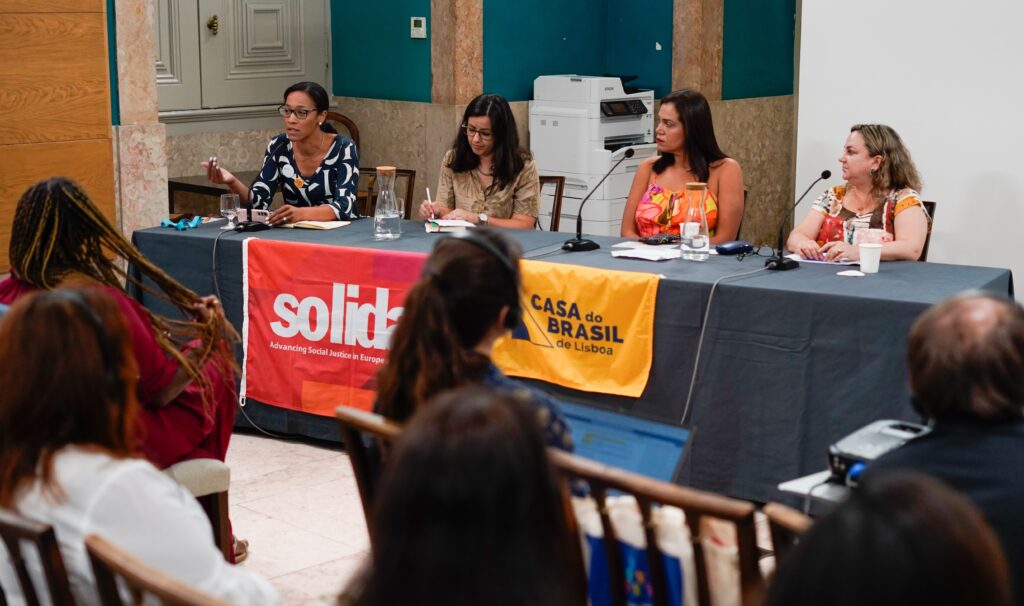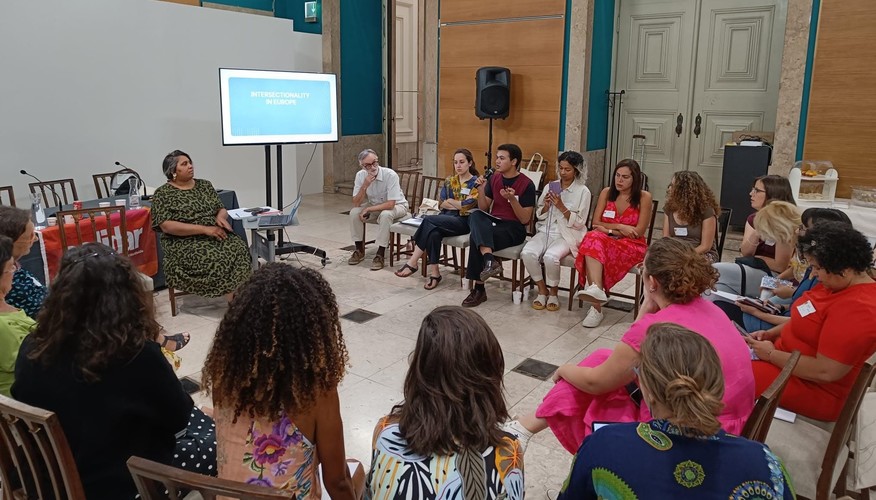Social Rights Ambassadors conference and Policy Focus in Portugal: employability, gender and migration
Social Rights Ambassadors event: looking at migration and gender’s impact on employability in Portugal
”Employability, migration & gender: challenges and good practices” is one of SOLIDAR’s Social Rights Ambassadors events for 2023 and took place in Lisbon, Portugal on 6th July 2023. It was co-organised by SOLIDAR and its transnational member Rede Sem Fronteiras, through their representation in Europe, Portuguese organisation Casa do Brasil.

Participation in the labour market is one of the major elements to social inclusion, all the more so for newcomers for whom a job is usually the only source of income and a driver of integration in other areas. At EU level, the European Pillar of Social Rights and the Action Plan on Integration and Inclusion recognize the need to foster migrants’ access to employment. However according to latest figures, the employment rate for non-EU born people in the EU was significantly lower than that of EU citizens. Looking specifically at migrant women, they are almost 25% less employed than their EU-born counterparts.
The event brought together 77 stakeholders to discuss issues related to employability of migrants in Portugal and in Europe, under a gender intersectional perspective, trying to identify not only challenges but also successes of different approaches. Testimonies from people with the lived experience of having emigrated to Europe and perspectives from civil society were central to the dialogue. The conversation also provided a space for practitioners on migrant inclusion from various countries in Europe to connect with each other, present their work and get inspired by good practices. Representatives from 7 SOLIDAR members were present: MPDL (Spain), Liga de la Educación (Spain), Willi-Eichler Akademie (Germany), Centre for Peace Studies (Croatia), CGIL (Italy), Initiative for Development and Cooperation (Serbia), Diáspora Sem Fronteiras (Portugal).
Takeaways:
Throughout the event, debate with participants highlighted that gendered stereotypes against migrant are not an isolated experience (alleged impossibility of women from some cultural or religious background to work with men, belief that migrant women are more likely to have kids and need maternity leave, etc). This requires fighting both against sexism and racism/islamophobia. It was also interesting for international participants to hear that people from Brasil even speaking the same language, are still not accepted – proving this is never really only about speaking the language.
Migrant women, black migrant women are not included in decision-making processes and this is a problem. The bigger problem is that participation in decision-making, as many political rights, is linked to citizenship and when you do not have it, you are left outside.
The lack of knowing the law and your rights is a dire problem, so is the difficulty in getting your skills recognised when you studied outside Europe, which effectively prevents one to exercise a regulated profession. Plus, a lot of women tend to underestimate their skills and previous work experience.
Among the main good action points that emerged from the discussion were:
- Good practices involving affection, emotion, story-telling.
- Systems of mentorship/buddies for migrants can be a good thing, especially when mentors are migrants themselves. CBL encourages more and more migrant people to fill leadership role.
- We as civil society and grassroots movement shouldn’t wait for governments to knock on our door, we should organise and be active at the political level, while doing the good work on the ground. We have to vote (those who can), such as in the European elections next year, to translate our will in a larger political project. We cannot create systemic change with good practices that rely on short-term funding.

Policy Focus – Training on intersectionality in migrants rights advocacy
On 7th July, 20 people including representatives from SOLIDAR Secretariat and members, had the privilege to take part in a training led by Juliana Wahlgren, European Anti-Poverty Network (EAPN), on Intersectionality and migrants rights, learning why and how to apply intersectionality when analysing/designing policies and interventions on borders, anti-discrimination or inclusion of non-Europeans. It was a great opportunity to exchange knowledge, views and experience around migration in Europe.
You can read a more detailed report of this event here.
These activities have been executed in the framework of the project ”Realising Social Europe For All and With All” with the financial support of the European Union, through the EaSI strand of the ESF+ programme.
Pictures credits: Rafael Pereira


